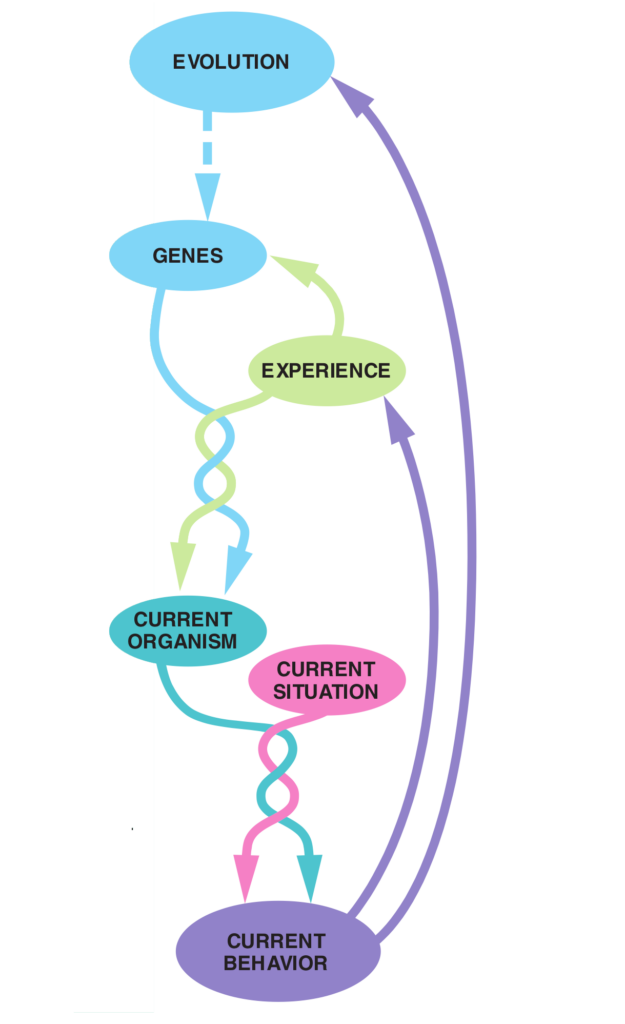The human reward system
The human brain reward system is intricately linked to survival and reproduction, functioning to motivate behaviors that enhance both individual survival and the passing on of genes. Here’s how survival and reproduction values are integrated into this system:
1. Neurobiological Mechanisms:
- Dopamine Pathways: Dopamine is a key neurotransmitter in the brain’s reward system. It is released in response to rewarding stimuli, reinforcing behaviors that are beneficial for survival and reproduction. The mesolimbic pathway, including the nucleus accumbens, is particularly important in this regard.
- Endorphins and Opioid System: These chemicals are involved in pain relief and pleasure. They promote behaviors that enhance survival, such as eating and social bonding.
2. Survival-Related Rewards:
- Food: Eating activates the brain’s reward system, ensuring that individuals seek out and consume necessary nutrients. The anticipation and consumption of food trigger dopamine release, reinforcing the behavior.
- Safety and Comfort: Actions that lead to safety (e.g., seeking shelter) or comfort (e.g., warmth) are rewarded with positive feelings, encouraging repeated behaviors that ensure survival.
3. Reproduction-Related Rewards:
- Sexual Behavior: Sexual activity is highly rewarding due to the release of dopamine, oxytocin, and other neurochemicals. This ensures that individuals are motivated to engage in behaviors that lead to reproduction.
- Social Bonding: Forming social bonds, including romantic partnerships and friendships, is reinforced by the reward system. Oxytocin and vasopressin play roles in attachment and social bonding, promoting stable relationships that support reproductive success.
4. Emotional and Psychological Components:
- Pleasure and Positive Emotions: Rewarding experiences are often accompanied by feelings of pleasure and happiness, which are crucial for motivation. These emotions are associated with increased survival and reproductive success.
- Stress Reduction: Engaging in rewarding activities can reduce stress and anxiety, contributing to better overall health and increased chances of survival.
5. Learning and Adaptation:
- Reinforcement Learning: The brain’s reward system supports learning by reinforcing behaviors that lead to positive outcomes. This involves both immediate rewards and anticipation of future rewards.
- Behavioral Flexibility: The reward system allows for adaptation to changing environments by promoting exploration and experimentation with new behaviors that might offer better survival and reproductive opportunities.
6. Social and Cultural Influences:
- Cultural Norms and Values: Cultural factors shape what is considered rewarding. Social norms around food, sex, and social behavior influence the brain’s reward responses.
- Social Status and Hierarchies: Achieving higher social status can be rewarding, as it often correlates with greater access to resources and mating opportunities, both of which enhance survival and reproductive success.
7. Pathologies and Dysfunctions:
- Addiction: Dysfunctions in the reward system can lead to addictive behaviors. Substances and activities that hijack the reward system can override natural survival and reproduction rewards.
- Mental Health Disorders: Depression, anxiety, and other mental health issues can disrupt the reward system, reducing motivation for survival and reproductive behaviors.
The human brain reward system is a complex network that integrates various biological, psychological, and social factors to promote behaviors essential for survival and reproduction. By reinforcing these behaviors through pleasure and satisfaction, the system ensures the continuation of these vital activities.
